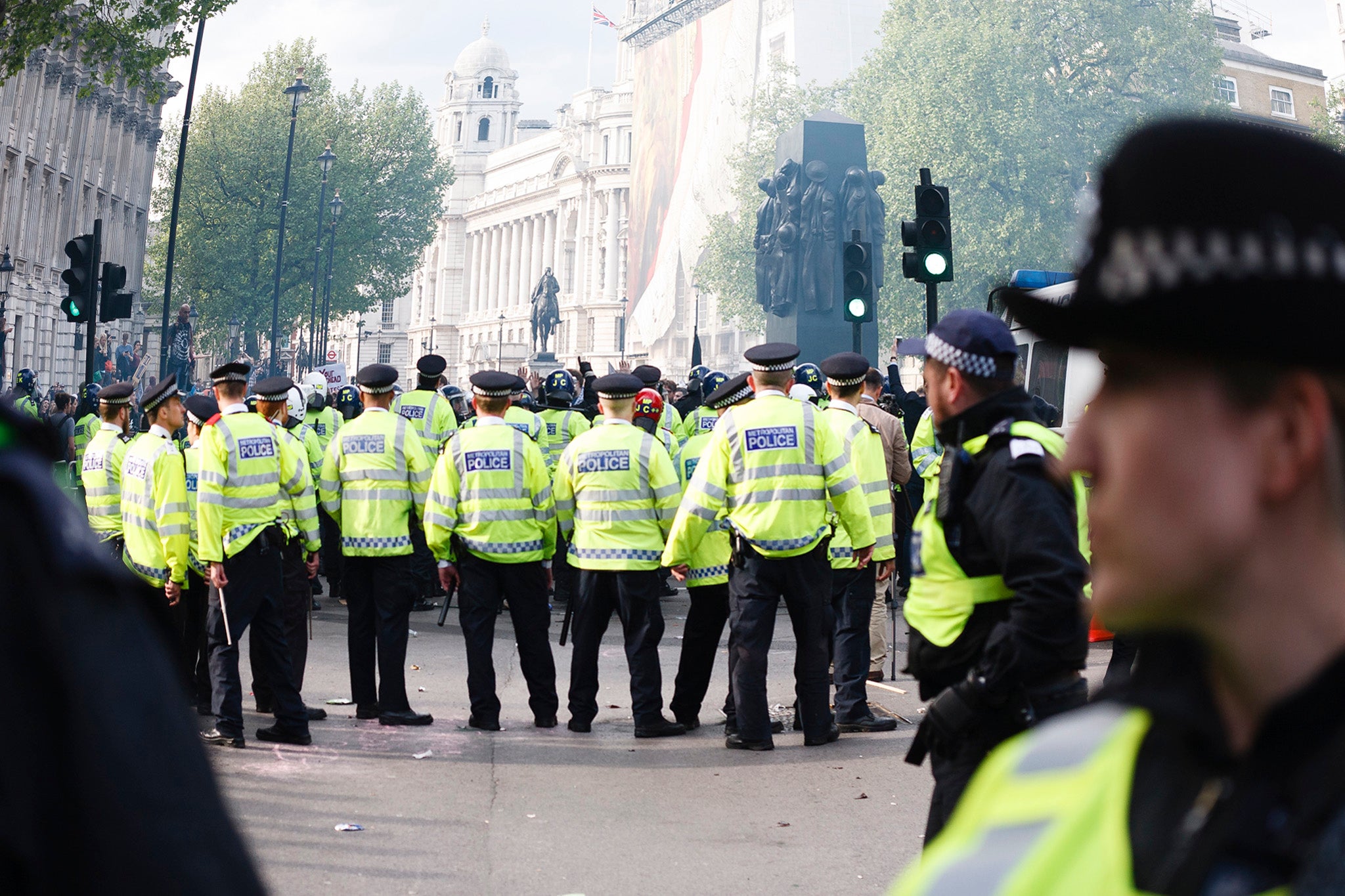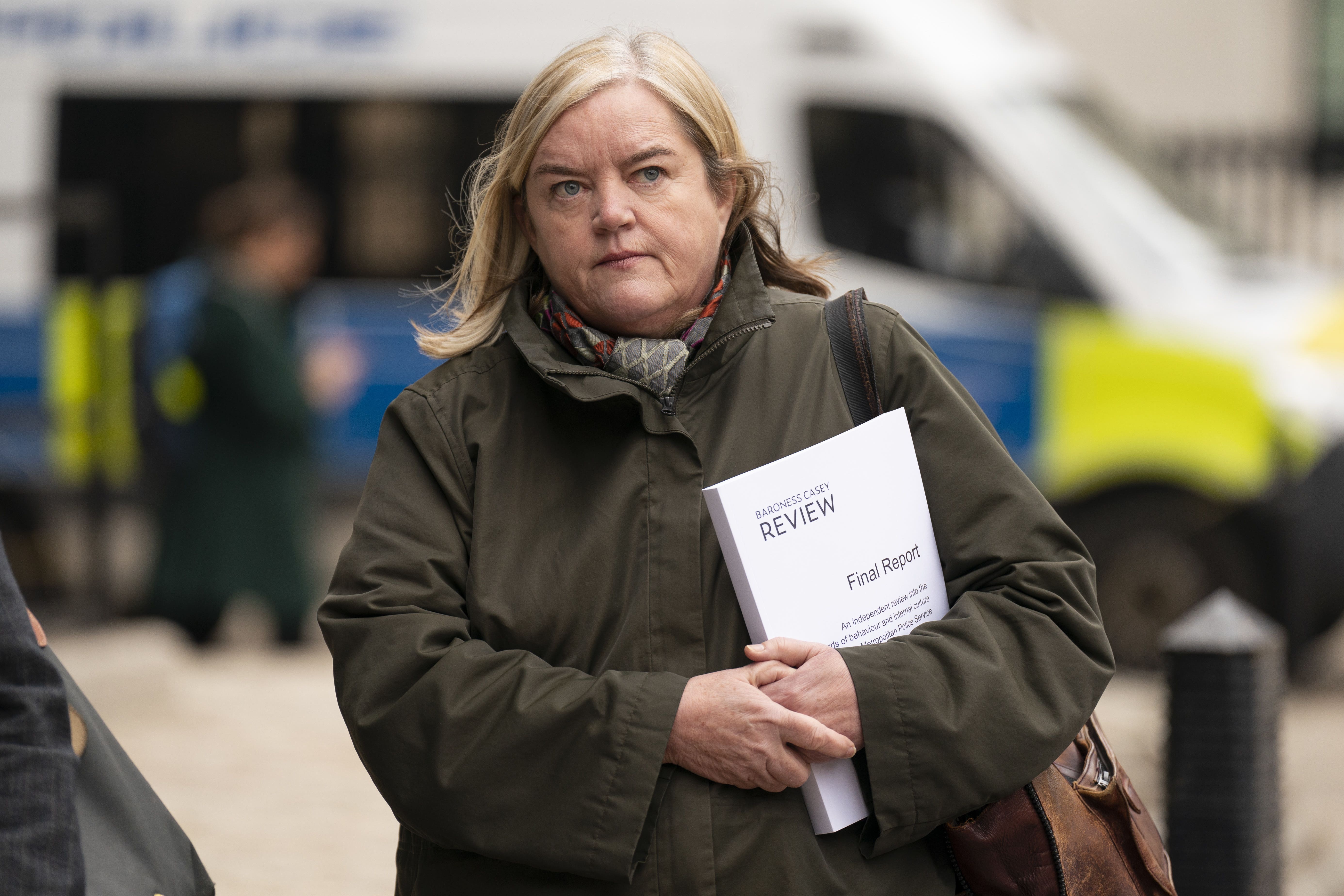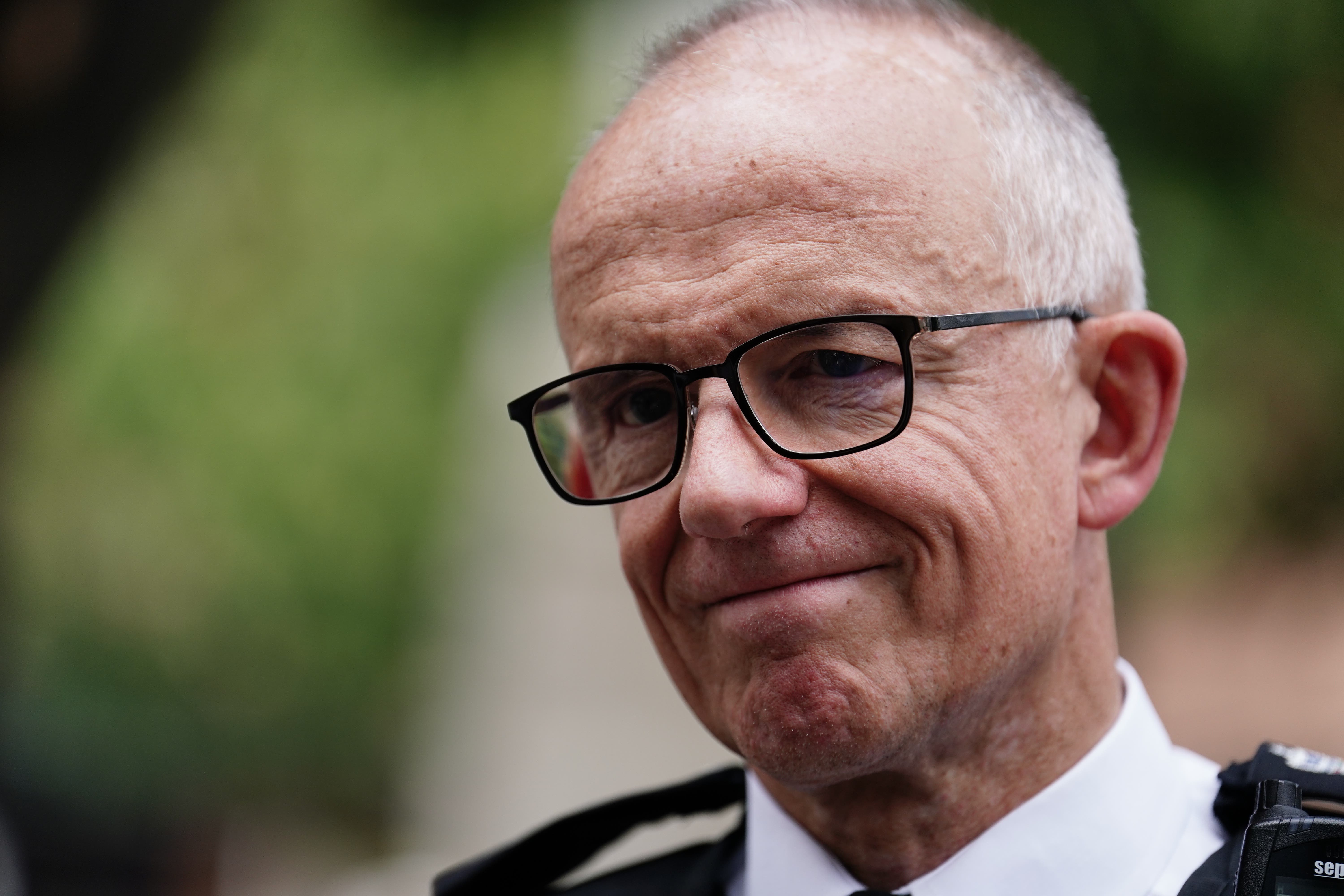Revealed: Shocking scale of ‘blatant’ racism in the Met as discrimination tribunals soar by 110 per cent
Exclusive: One serving Black officer said ‘angry white people’ in the force are upset by so-called ‘wokeness’

Racism is getting worse in Britain’s biggest police force, Black police leaders have warned, as new figures reveal that tribunals for racial discrimination have soared by 110 per cent in a year.
Employment tribunal data obtained exclusively by The Independent shows that cases brought against the Metropolitan Police on the grounds of racism more than doubled from 2022 to 2023.
Andy George, president of the National Black Police Association (NPBA), said he had seen a 2.5-fold increase in support cases since the force was found to be institutionally racist for the second time in a damning review last year.
One serving Black police officer, who has raised a grievance over race discrimination, said racism was now “blatant”, adding: “There are also a lot of angry white people in the force, who are upset by so-called ‘wokeness’ and take it out on people even more.”
Have you been affected by this? Email nadine.white@independent.co.uk
Another serving officer, of ethnic minority heritage, told The Independent about male peers describing her as “exotic” and having “animalistic characteristics”, and described their fascination with her race as “almost like a fetish”.
Other examples of racism included offensive language being used in staff WhatsApp groups, victimisation if colleagues lodge complaints about discrimination, and ethnic minority officers being subjected to “unfair” disciplinary proceedings.
Former Met Police superintendent Leroy Logan, who founded the NPBA, said the figures remind him of a pre-Macpherson-era Met – a time when the force was found to have bungled the investigation into the racist murder of teenager Stephen Lawrence.

The 1999 Macpherson report was the first major review to conclude that the force was “institutionally racist” – a finding echoed by Louise Casey in her report last year.
Mr Logan said that he fears the true scale of the issue could be even higher given the underreporting of racism.
“These new figures only offer a snapshot of the Met in a terrible situation that’s spiralling beyond any similarity to the organisation I knew,” he added.
The findings come during a 65 per cent year-on-year rise across the board in tribunals brought against the force, including a 70 per cent increase in disability discrimination tribunals and a 27 per cent surge in sex discrimination tribunals.
The number of race discrimination tribunals rose from 20 to 42, disability tribunals from 38 to 65 and sex discrimination cases from 22 to 28.
Experts believe many staff grievances are rooted in the unfair treatment of Black and minority ethnic officers, after Baroness Casey found that they are more likely to face disciplinary or misconduct proceedings.
Her report found that Black officers are 81 per cent more likely to be in the misconduct system than their white counterparts.
“There are people in the Met with racist attitudes, and Black, Asian and ethnic minority officers and staff are more likely to experience racism, discrimination and bullying at their hands,” the report added.
Responding to the surge in cases, Mr George said: “I believe the increase is due to racism getting worse. There has been a 2.5-fold increase in support cases since the Casey review and we have found more officers being subject to disciplinaries through the misconduct system.
“For a long time, officers have seen tribunal cases as their only chance of getting justice.”

The figures come after the NPBA in February called for people from ethnic minorities to boycott joining the Met in protest at a “racist and vexatious” misconduct investigation into a leading officer.
The association claims that Charles Ehikioya, chair of the Met Black Police Association (MPA), was targeted because he had voiced concerns about the racism he and his colleagues experienced.
Mr Logan, who won damages from the Met after he was wrongly accused of misconduct over an £80 expense claim following a distinguished policing career, said: “It’s quite clear that the Met has a terrible culture.
“People are not staying, and if they are, they’re going through so much harassment, mainly based on the colour of their skin and gender. If you’re a Black woman, it’s a double whammy.”
The officer, who was later awarded an MBE for advancing policing, said the force is “unrecognisable” since he retired 10 years ago, adding: “The Met has a track record for an abuse of process when it comes to the investigation of Black officers, which adds to this toxicity of the operational culture.
“The Met BPA is having a recruitment boycott for these reasons, highlighted in the way in which its chair, Charles Ehikioya, is being investigated. In the Met, you’re four to five times more likely to be investigated if you’re Black than your white colleagues, and less likely to be put forward for promotion.”

The Independent spoke to a serving Black police officer who has previously raised a grievance based on race discrimination.
“Racism has always been in the force, but more people are lodging tribunal claims because they can, and it’s getting worse in terms of the things that are happening to them,” they said.
“It’s so blatant now. It’s not a case of someone putting a banana in your locker or calling you a monkey. The misconduct system is often used against Black officers where we feel so isolated all the time.
“There are also a lot of angry white people in the force, who are upset by so-called ‘wokeness’ and take it out on people even more.”
Speaking about their own experience of racism within the force, the officer added: “I don’t want to be treated differently – I just want to be treated fairly.”
Rick Prior, the chair of the Met Police Federation, said that Baroness Casey’s findings had empowered some officers to pursue their complaints.
However, while acknowledging that there are clearly pockets of problematic behaviour, Mr Prior said he does not accept her allegation that the Met is “institutionally racist, sexist or misogynistic”.
“It could be a factor, as well, that officers have looked at Baroness Casey’s report and they have felt empowered to lodge a claim if they feel they have been treated unfairly,” he said.
Mr Prior is supporting one case in which a Black officer was subject to “disproportionate scrutiny” by his local professional standards unit, which launched misconduct proceedings against him.
He added: “If a Black or minority ethnic officer is being treated disproportionately, there needs to be some mechanism within the Met for it to be properly scrutinised so they can learn from and prevent it from happening in future.”
He also revealed the Met Police Federation, which represents rank-and-file officers, is dealing with an increasing number of disability-related claims from officers who need reasonable adjustments, such as working from home or a phased return to duties.
Dave Campbell, chair of the Met Police Disability Association, told The Independent that while the force has made great strides in disability awareness in recent years, there is still a long way to go.
Responding to the figures, he said: “I am not surprised but I am concerned. I deal with many complaints from members of our disabled workforce, and that has increased since Casey – increased at an alarming rate.”
He said there had been a more “cavalier” attitude around how disabled people are being treated, with some being “managed out of the organisation”.
He called for the force to stop focusing on what staff can’t do and see the value in employees in order to create a workforce where disabled staff can flourish.
A Scotland Yard spokesperson said: “Our aim is to be a service that all Londoners can be proud of. There is no place for discrimination of any kind in the Met.
“We are creating a workplace where everyone can thrive – and that is inclusive and accessible to all.”